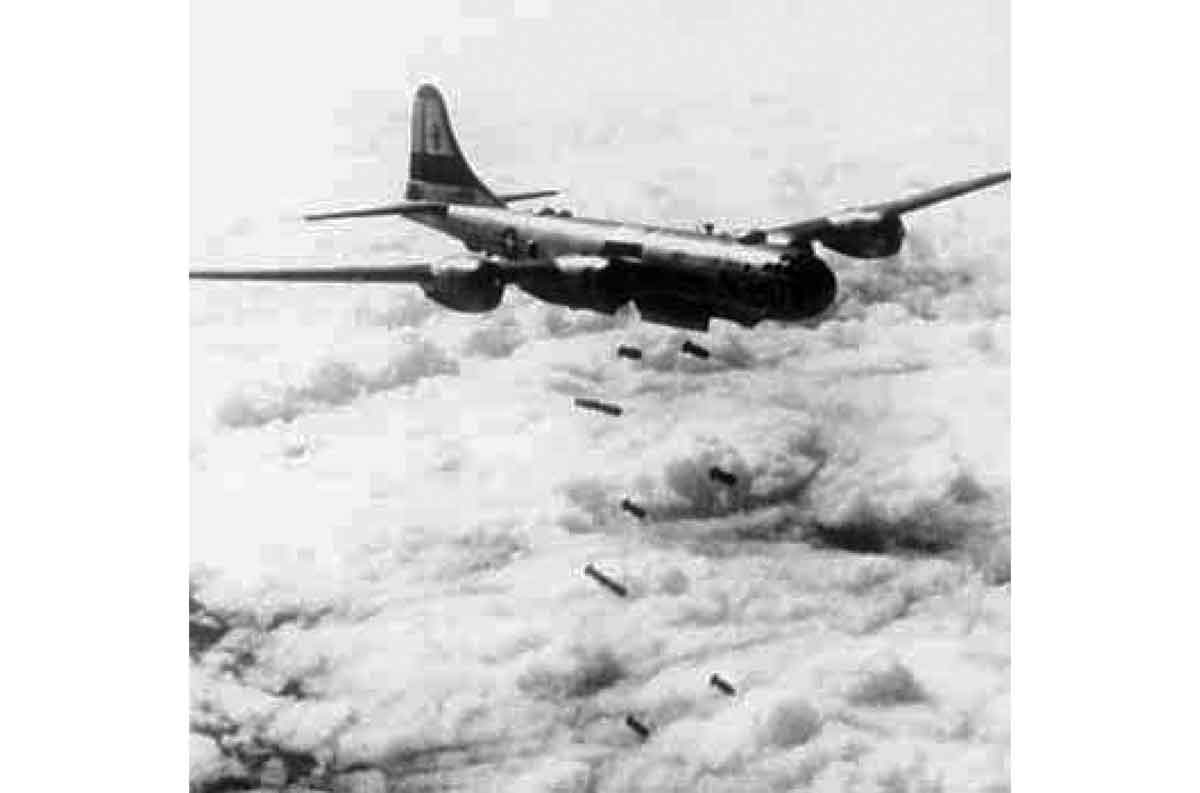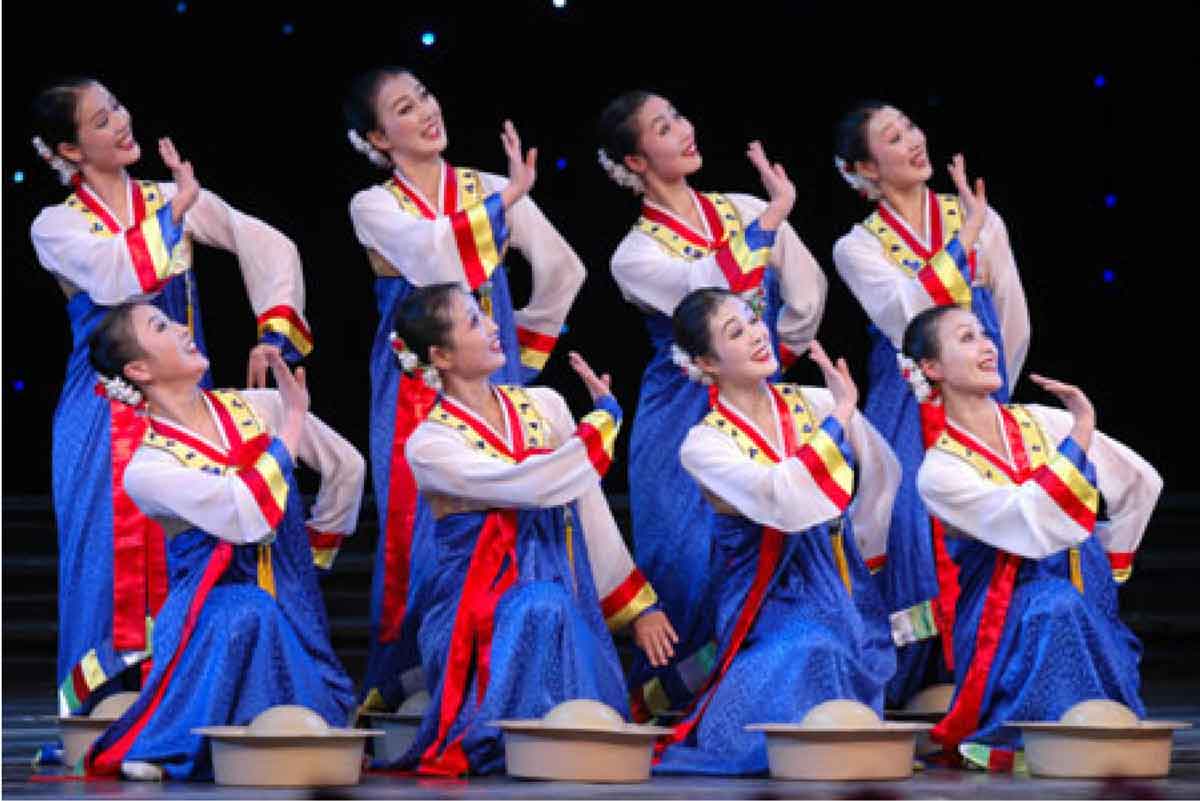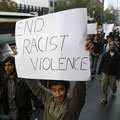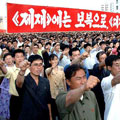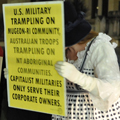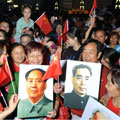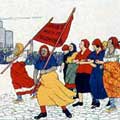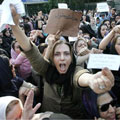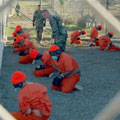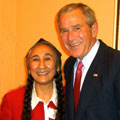June 2009: North Koreans condemn United Nations Security Council Resolution 1874.
6 August 2009 - What do you call it when a warship from one country shadows a civilian cargo ship from another country in international waters? You call it a provocation. You call it dangerous bullying that verges on being an act of war. Well, this was exactly what a U.S. naval destroyer was doing to a North Korean cargo ship, the Kang Nam 1, for two weeks in June. The cargo ship which left the North Korean port of Nampo on June 17 was tracked by America’s Aegis missile armed destroyer, the USS John S. McCain as it sailed down China’s coastline.
The U.S. was acting under the cover of United Nations Security Council resolution 1874. This resolution outrageously allows member nations to request permission to board and search any ship going to and from North Korea that is “suspected” of carrying “banned goods.” Once the ship docks in another country, a member nation can pressure the country where the ship docks to allow the ship to be inspected. Under the Security Council resolution, adopted by, among others, the world’s biggest weapons exporters – the U.S., Britain, France and Russia - North Korea has been banned from exporting weapons. The U.S., Japan and other imperialist powers will no doubt try to use the pretext of “suspicion” of “banned goods” being carried to harass any North Korean ship they choose to. That is what the U.S. did with the Kang Nam 1.
Security Council Resolution 1874 was nominally a response to North Korea’s May 25 underground nuclear test. This Resolution scales the heights of hypocrisy. It is not North Korea but the U.S. rulers that have a massive nuclear arsenal. The U.S. has some 9,400 nuclear warheads! In contrast, no one thinks that North Korea possesses more than a handful of nuclear warheads and it is, indeed, doubtful that it has any nuclear, actual warheads at all. The capitalist powers brand North Korea as a “rogue state.” Yet it is the U.S. imperialists that have proven - by their heinous bombings of Hiroshima and Nagasaki - that they are actually prepared to use nuclear bombs against human beings. Furthermore, even while brandishing against North Korea the 1970 Nuclear Non-Proliferation Treaty (NPT) that nominally restricts the spread of nuclear weapons to previously non-nuclear countries, the capitalist powers have themselves blatantly violated the NPT. The U.S., Britain and France helped their blood-soaked Israeli ally to develop nuclear weapons. Meanwhile, the U.S. allows its NATO allies like Germany, Italy and Turkey to get around the NPT by deploying its own bombs in these countries and training the host countries’ militaries to deliver these bombs. They have even adapted these allies’ warplanes so that they can deliver U.S. nuclear bombs. If that is not spreading nuclear weapons to other countries then what is!
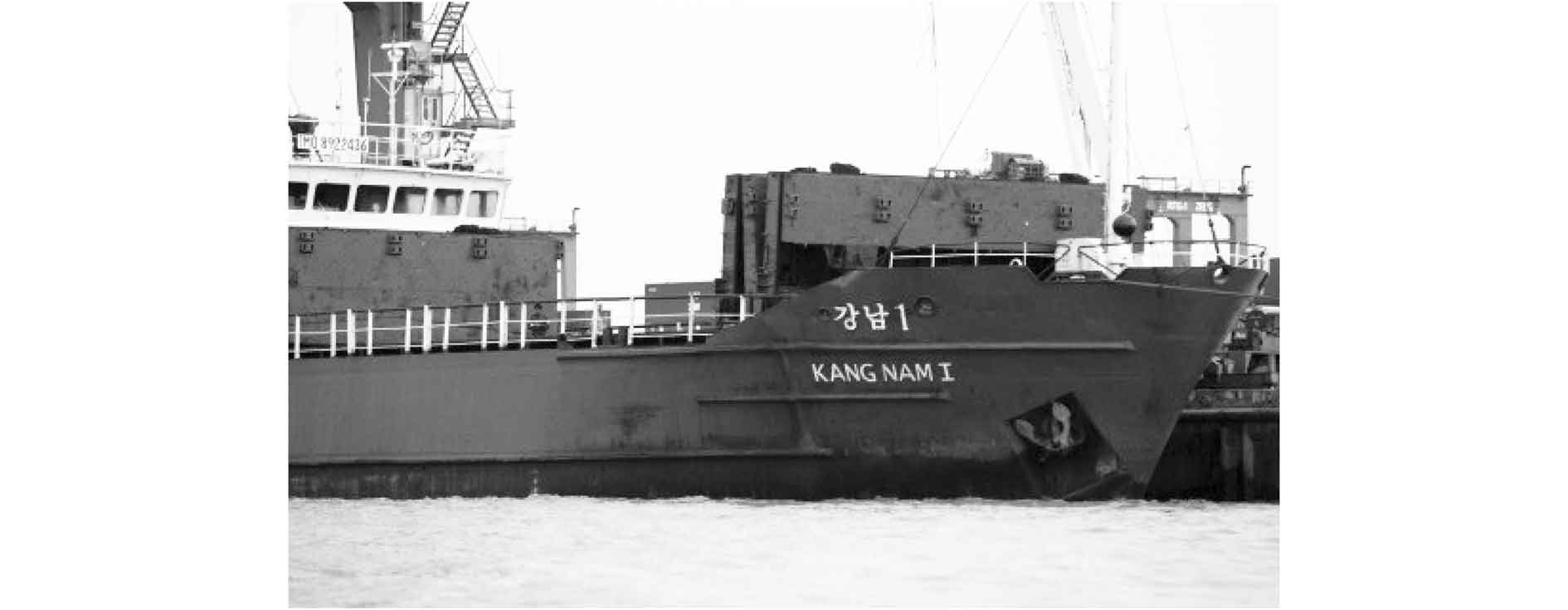
North Korean civilian ship that was provocatively
shadowed by the American naval destroyer, USS
John S. McCain.
As well as banning weapons exports from North Korea, the anti-North Korea UN resolution also stops North Korea from importing a range of goods including non-military items. The U.S. has instituted additional sanctions, including moves to restrict funds and freeze assets of North Korean banks. The Australian imperialists could not wait to get into the act too. Foreign minister in the ALP government, Stephen Smith, hailed the Security Council resolution against North Korea and promised to work to ensure that the new measures “are fully implemented by the international community” (Australian Labor Party website, 15 June)
So why are Washington, London and Canberra targeting North Korea? When Iraq was targeted it was clear to everyone with any understanding of the world that the U.S. wanted to grab greater control of the world’s oil supplies. The U.S. and its allies target Iran too because they want to ensure that all regimes in the oil-rich Middle East are completely subservient to them. But North Korea is not at all oil rich so why do they go to such efforts to strangle it? The sole reason is that North Korea is not capitalist. Instead, North Korea which is officially called the Democratic Peoples Republic of Korea (DPRK) is a workers state. Imperialism imposes sanctions on the DPRK for the same reason that the U.S. imposes economic sanctions on socialistic Cuba and for the same reason that Western governments sponsor exile groups seeking to undermine the Peoples Republic of China (PRC.)
To be sure, the DPRK is a rather bureaucratically deformed workers state. However, for the capitalist powers the very existence of any state based on the overthrow of capitalism is a threat to the capitalist order - a socialistic virus that could potentially infect the whole world. Furthermore, the capitalists know that by landing blows against little North Korea they are also putting pressure on the biggest and most powerful socialistic state: the country that happens to be North Korea’s neighbour and ally, the PRC.
Constantly Threatened
Anyone who truly hates imperialism cannot but admire the North Korean people’s defiance of the capitalist powers. In response to the UN Security Council resolution, the DPRK stated that “if the U.S. and its followers attempted to blockade the DPRK,” the DPRK will oppose it with “resolute military actions.” The official DPRK statement denounced the U.N. resolution as “another vile product of the U.S.-led offensive of international pressure aimed at undermining the DPRK’s ideology and its system chosen by its people by disarming the DPRK and suffocating its economy.” And it added that the DPRK’s nuclear test was “a self-defensive measure as it was conducted to cope with such hostile acts of the U.S.”
B29 bombers that the U.S. used to destroy North Korean cities from the air during the Korean War. In September and October 1951, a series of lone B29 missions dropped dummy atomic bombs on
Pyongyang as the U.S. rehearsed a nuclear strike on North Korea and China.
The defiance of the North Korean people is born of bitter experience. During the 1950-53 Korean War, the U.S., British and Australian imperialists killed between 2 – 3 million North Korean citizens. U.S. B29 bombers dropped millions of gallons of napalm in a genocidal “scorched earth” policy that simply wiped out entire North Korean cities from the map. In the beginning of January 1951, American General Mathew Ridgway ordered the air force to hit the North Korean capital, Pyongyang, “with the goal of burning the city to the ground with incendiary bombs,” which they did in two strikes on January 3 and January 5 (“Consequences of the ‘Forgotten War,’” Bruce Cummings, printed in Le Monde Diplomatique, December 2004.) Pyongyang and just about every other city in North and Central Korea was again leveled by U.S. bombing in December 1952. Those North Koreans that survived were by then literally living in caves. Today, tens of thousands of U.S. troops remain stationed in capitalist South Korea to target the DPRK. Meanwhile, to amplify the threat, U.S. aircraft and naval vessels regularly move in and out of DPRK airspace and waters.
Having withstood all this over the last six and a half decades to protect their anti-capitalist conquests the North Korean masses are not willing to throw in the towel just yet. Older North Koreans who can remember the period of the DPRK’s development in the 1950s and 60s know how much was achieved through the construction of a state based on collective ownership of industry and land. The North Korean workers state was first established in the latter days of World War II in 1945 when the Soviet Red Army and Korean communist resistance fighters liberated the Northern part of the Korean peninsula from Japanese colonial rule. Before long, the industry in the country which had almost been exclusively owned by the Japanese imperialists and rich Korean collaborators was nationalized and the agricultural land was taken away from the greedy landlords and given to the impoverished tenant farmers who worked the land. Later the farmers joined their lands together into large collectively owned farms. This socialized economy produced big gains for Korean workers and liberated peasants in the fields of health care, education, public transport and women’s rights. Even in today’s very difficult times, all North Korean people get completely free health care, education and housing. The DPRK has a well-educated population and has one of the lowest illiteracy rates in the entire world.
Despite being completely devastated during the Korean War, the DPRK’s centrally planned economy had by the late 1960s produced an advanced industrial economy. North Korea then had the second most industrialized economy in all of Asia (second only to its previous colonial oppressor Japan which had been light years ahead of Korea at the time the DPRK was formed.) The DPRK had up till then been far advanced of South Korea especially in areas of social welfare and public services. Thus many South Korean workers and youth looked favourably to the North. They also saw the DPRK as the truly independent Korea whereas they thought of South Korea as a puppet of U.S. imperialism.
Pyongyang suburban railway station.
The U.S. thus feared that anti-capitalist revolution would spread to South Korea. Hence, they started to more vigorously pump up the South Korean economy. They also made a decision that they would not economically rob South Korea to the degree that they exploit other former colonies like the Philippines and Mexico. This was a strategic decision made by the U.S. capitalists – in the case of South Korea they were to forego some of the profits that they usually leach out of poorer countries in order to build it up as a bastion against communism. They employed the very same policy with respect to Taiwan which they sought to buttress as both a military force and showpiece against the socialistic PRC. However, South Korea’s U.S.-bred tiger economy has produced a cutthroat society where overstressed workers have to toil very long workdays. Although capitalist South Korea is no longer the military/police-state dictatorship that it was for much of the last 64 years, to many workers it still feels like one – striking workers are regularly beaten and jailed by the country’s brutal police.
The U.S-propped up rise of South Korea did start to put greater pressure on the North by the 1970s. Furthermore, when oil prices drastically increased in the 1970s it hit North Korea, which has no oil of its own, hard. Economic sanctions compounded difficulties. Then when Cold War II began in the early 1980s during the regime of U.S. President Ronald Reagan, the external hostility faced by the DPRK went up another notch. However, what really hit the DPRK hard was the counterrevolution that destroyed the USSR in 1991-92. Without Soviet military backing, Western imperialist threats escalated and the vulnerable DPRK had absolutely no choice but to increase the amount of resources it spent on defence. This put tremendous pressure on its economy. Furthermore, the USSR had been the DPRK’s main economic backer in the face of severe economic isolation from much of the rest of the industrialized world. Now this lifeline was cut off too. As a result, the DPRK’s economy suffered a serious shock as did, to a slightly lesser extent, Cuba’s. In the mid-1990s there was a serious food shortage in North Korea that led to terrible deprivation and a fall in life expectancy. Since then the people of the DPRK have been able to pull up their economy to some degree. In part this is because, although North Korea was itself originally included in George W. Bush’s so-called axis of evil, the U.S. engagement in invasions of Afghanistan and Iraq allowed the DPRK a greater amount of breathing space than it would otherwise have had. Furthermore, the PRC has stepped up economic cooperation with the DPRK. Yet the DPRK’s position still remains extremely precarious and threatened.
All the pressure bearing down upon North Korea has considerably deformed the workers state there. But what else would you expect? Does an object squeezed in a vice not also distort. One symptom of the deformed character of the DPRK workers state is its construction of a personality cult around its chief Kim Jong-Il and his father, founding DPRK leader Kim Il-Sung. Leadership dynasties and personality cults around political officials have nothing at all to do with authentic communism. Furthermore, the DPRK leaders promote an ideology that is a nationalist perversion of communism. Called Juche, this ideology preaches complete North Korean self-reliance. What this means in practice is that while DPRK leaders admirably rebuff imperialist diktats they make little effort to appeal to the exploited and downtrodden in the imperialist countries. Indeed, the DPRK leaders’ long term perspective is not the overthrow of capitalist rule in the presentday imperialist countries in order to relieve the strangulation of the DPRK but rather the hope that North Korea will by its own efforts be one day able to muster enough strength to compel the imperialists to agree to “peaceful coexistence” with it. However, to agree to “peaceful coexistence” with imperialism means to agree to renounce any support for the struggles of the American and Japanese working classes on the promise that imperialism will in turn leave the DPRK alone. Not only is this an anti-internationalist snub of the oppressed classes in the U.S., Japan etc but it is wholly unrealistic – for capitalism and a workers state are mutually counterposed and cannot in the long term coexist at all.
Yet, the DPRK leadership’s failure to struggle for world socialism is not the reason why the capitalist powers are choosing to target it. Obviously not! Nor is the DPRK being hounded because its method of leadership succession currently has more in common with the Nehru/Gandhi dynasty in India or the British royal family than with the workers democracy of Lenin’s Bolsheviks. No, the DPRK is being attacked solely because of the socialistic, pro-working class features of its state. That is why sincere socialists and working class activists around the world must organize actions in solidarity with the DPRK workers state.
22 March 2009: Actresses from North Korea perform in Changchun, capital of northeast China’s Jilin
Province.
The Peoples Republic of China Must Stand By its Socialistic sister!
The last period has seen an escalation of threats against North Korea. In December 2007, Lee
Myung-bak of the right wing Grand National Party became president of South Korea and vowed to implement an even harder line against North Korea. Then a year later, the new Obama administration came into office in the United States. With Hillary Clinton as Secretary of State, the new Administration has a program for the U.S. to “reengage with” and “take back leadership” in the Asia- Pacific region which they noted had been “neglected” by the previous Administration. Concretely, this means the U.S. more forcefully pressuring North Korea and more intensively using diplomatic and political means to backhandedly undermine socialistic rule in China. As many in the U.S. ruling class have hoped, the intelligent, black liberal Obama has proved to be more effective and skilful at winning outside support for American imperialist agendas than the right-wing buffoon Bush. This spells a greater danger for the existing workers states of North Korea, China, Cuba and Vietnam.
To help it to use the nuclear issue to build pressure on North Korea, the new Washington Administration is claiming that the U.S. itself will move towards nuclear disarmament. Obama has announced proposals for the U.S. and Russia to each reduce their number of nuclear warheads. America’s own possession of a massive nuclear arsenal has undermined its ability to secure popular support for its drive to disarm states that refuse to submit to its diktats. The Obama Administration’s nuclear arms reduction proposal aims to correct this weakness through a cynical fraud. Even after the mooted cuts, the U.S. and capitalist Russia will each retain enough warheads to blow the whole world up many, many times over. To use this proposed arms reduction as a means to pressure North Korea to disarm is the equivalent of a powerful army with 9,400 armed men saying to a surrounded small group with five guns: “we will put down five of our guns if you put down your five”!
The turning of the vice squeezing the DPRK coincides with, and is part of, intensified Western efforts to chip away at the DPRK’s main ally, the PRC. The capitalist powers have been alarmed at socialistic China’s economic successes and at its growing respect amongst the masses in the “Third World” – in Africa and Latin America in particular. In the lead up to last year’s Beijing Olympics, imperialist intelligence agencies and anti-communist organizations worked with right-wing Chinese exiles to organise actions aimed at tarnishing the PRC’s hosting of the games. In March 2008, anti-PRC forces orchestrated by CIA-funded Tibetan exile groups went on a rampage in China’s Tibetan Autonomous Region (TAR.) They killed 18 civilians and burned down the mosque frequented by the TAR’s Hui Muslim minority. These forces loyal to the former monarch of Tibet, the Dalai Lama, seek to use the call for “Tibetan independence” to reverse the pro-socialist overturn in Tibet and return Tibet to the old system where a handful of big landlords and monks lorded it over terribly oppressed serfs and slaves. Moreover, in the aftermath of the riots in TAR, rightwing forces in the West in coalition with ill-informed small-l-liberals brandished the call for “Free Tibet” to disrupt Olympic torch relays in Paris, San Francisco and elsewhere.
More recently, the Washington-funded World Uyghur Congress, led by multi-millionaire capitalist Rebiya Kadeer, seized on economic grievances amongst Uyghurs to incite a terrible pogrom against non-Uyghur minorities in the PRC’s Xinjiang-Uyghur Autonomous Region. Almost 200 people were killed by the right-wing, anti-communists- mostly innocent Han Chinese people but also Uyghurs who got in the way of the mob. The U.S-based World Uyghur Congress is funded by America’s National Endowment for Democracy (NED), a pseudo-“private” organization which gets its money almost entirely from the U.S. Congress. The NED is an organization set up by the U.S. government to foster counterrevolution against socialistic states. Among the organisations and individuals that the NED funds are Chinese “pro-democracy” outfits, anti-communist Cuban groups as well as right-wing opponents of Hugo Chavez’s left-leaning, nationalist government in Venezuela. Notably, the NED also funds “Free North Korea Radio,” a station based in Seoul that beams anti-communist propaganda into North Korea.
The Chinese government is not unaware of all this and is not oblivious to the fact that Washington’s harassment of the DPRK is aimed at the PRC too. Yet the Beijing bureaucracy is so obsessed with building “peaceful coexistence” with the capitalist powers that it baulks at challenging U.S. moves against the DPRK. Furthermore, Beijing has fallen for Washington’s cunning divide and conquer strategy. The U.S. aims to woo the PRC away from solidarity with the DPRK by implying that good U.S-China relations will follow if Beijing obliges. The Obama/Clinton team has summed up the United States current strategic situation, a situation where American economic woes and setbacks in Iraq and Afghanistan mean that Washington’s world power has been somewhat weakened. Obama and Co. have thus figured that U.S. capitalism must in a few areas temporarily weigh more towards diplomacy and “soft power” rather than good ol’ reliable hard power. They have determined that for a period it may be better for them to not always openly confront the PRC but rather to state a willingness to cooperate with China while energetically working to undermine the Chinese workers state covertly through sponsorship of anti-communist groups and through more actively seeking to lead Beijing astray.
On the question of the DPRK, Beijing has indeed been led astray. Led astray so far that it actually voted for the UN Security Council Resolution 1874 that imposed new sanctions against North Korea. To be sure, the PRC leaders while wrongly condemning the DPRK’s nuclear test did attempt to water down the most extreme aspects of the resolution and succeeded in inserting a clause saying that the issue should be resolved peacefully. In explaining why China voted for the final resolution, PRC permanent representative to the UN, Zhang Yesui, stated that the resolution “also sends a positive message to the DPRK. It shows the stance and determination of the Security Council to resolve the DPRK nuclear issue peacefully through dialogue and negotiations. In this context, Chinese delegation voted in favour of the resolution.” It is fine for the Chinese government to attempt to weaken an anti-DPRK resolution but to vote for one is a betrayal of the PRC’s socialistic sister.
For the PRC to accede to a plainly anti-communist campaign against the DPRK is inevitably also harmful to the Chinese workers state itself. It is instructive here to look back at some of the events that led up to the destruction of the Soviet workers state in 1991-92. The prelude to the collapse of the Soviet Union was characterized by its then leader Gorbachev shamelessly bowing to imperialist foreign policy demands. In 1989, under U.S. pressure, Gorbachev withdrew Soviet troops from Afghanistan. The Soviet Red Army had some ten years earlier been called in by the left-wing Peoples Democratic Party of Afghanistan (PDPA) government to protect the Afghan government from an insurgency by U.S.-backed religious fundamentalists and big landowners. When Gorbachev pulled the Red Army out of Afghanistan this was not only a sellout of Afghanistan’s terribly oppressed women and rural poor - who had gained so much from the PDPA’s progressive reforms - but it also emboldened the capitalist powers in their drive to undermine the USSR itself. Gorbachev’s Afghan betrayal was soon followed by many more. When Western-sponsored capitalist restorationists moved to grab power in the then workers states of Eastern Europe in 1989-91, the Soviet leadership signaled that they would accept such counterrevolutions by promising that the Red Army would not try and stop the overthrow of socialistic rule. Soviet heads thought such concessions to the American and German capitalists would lead to better relations between the USSR and the West. Instead it encouraged the West to go for the kill and orchestrate the destruction of the USSR itself.
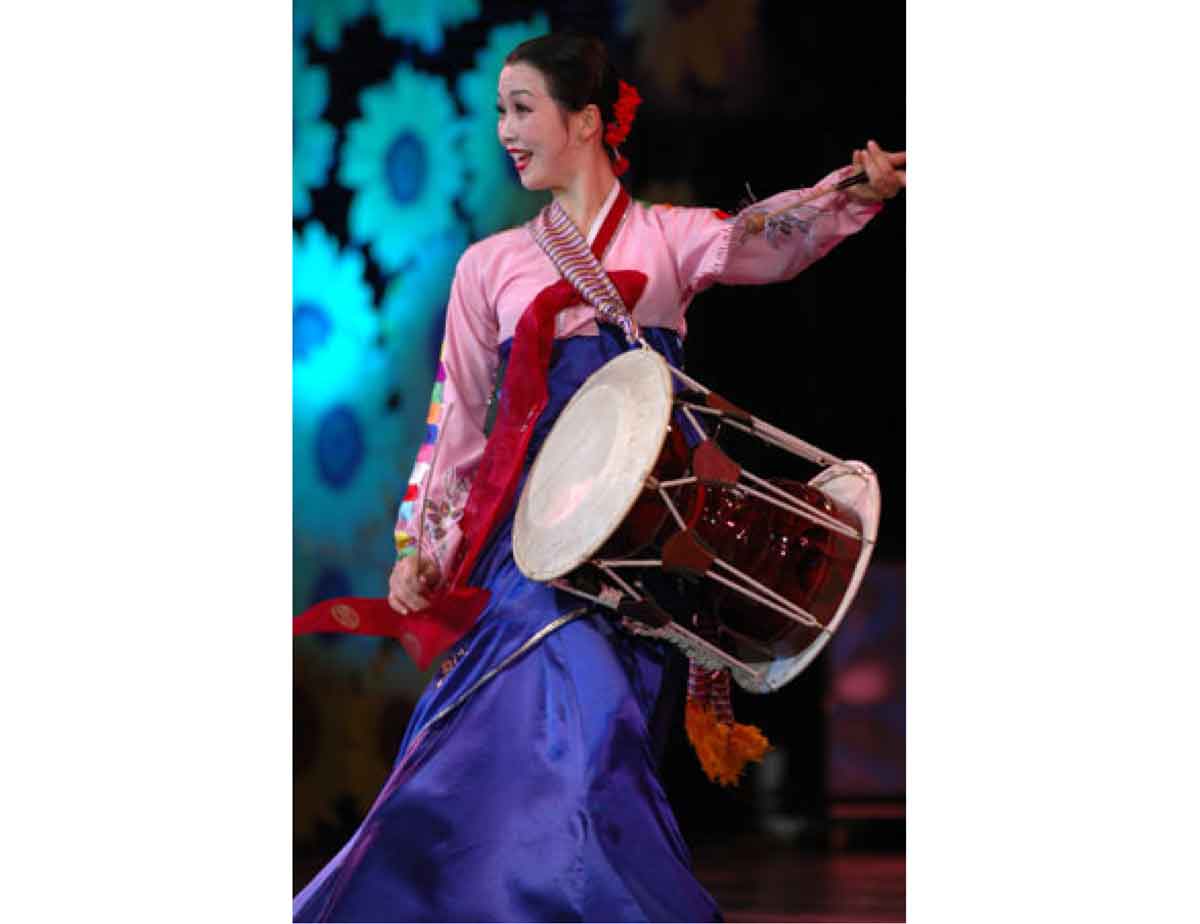
22 March 2009: Actress from North Korea performs in Changchun, capital of northeast China’s Jilin Province.
Today, those political forces within China that want her to embrace more aspects of Western capitalism are pushing for the Chinese government to take an even tougher line against the DPRK. Such elements understand too well that if the PRC accepts an anti-communist push against its long time socialist ally, the DPRK, then this will politically compromise the pro-communist character of the PRC state itself. To enthusiastic cheers from the West’s tycoon-owned media outlets, a group of 60 right-leaning Chinese academics, lawyers and public servants have signed an open letter to the PRC government calling for China to halt aid to North Korea and help bring down the Pyongyang government (The Australian, 1 July 2009.) Fortunately, there are also leftist PRC academics and intellectuals calling for the PRC to more strongly stand by the DPRK. The question of whether the PRC should defend the DPRK is one of the defining battlegrounds in the struggle within China between those forces that want capitalist restoration and those that want to reinvigorate the drive to socialism. Chinese leftists must today evoke the spirit of the PRC’s heroic defence of the DPRK during the Korean War - when hundreds of thousands of Chinese People’s Volunteers gave their lives to help the DPRK drive back the imperialist armies. Most importantly, Chinese socialists must recall the internationalism of the Communist Party of China (CPC) when it was first formed in 1921. Back then the CPC knew that the struggle for socialism in China can only be built in alliance with the struggle for socialism in all countries.
The Almighty, Threatening Power of a “Dysfunctional State”?
Alongside all the sanctions and threats, the Western and Japanese capitalist rulers have unleashed a propaganda barrage against North Korea. One the one hand, North Korea is branded as a potential nuclear threat with the most hysterical voices speculating on the possibility that North Korean missiles could be fired off at Australia and the U.S. On the other hand, North Korea is portrayed as a completely dysfunctional state. A reasonable person must, however, question how all these things can be true at the same time. If North Korea is indeed a failed state falling apart at the seams, how is this tiny country capable of the level of organization, technology and research required to be the military threat that it supposedly is to the most powerful states in the world?
The truth is that while the DPRK is under great strain from the sanctions and the incessant military and political pressure that squeeze it, it is not at the present moment collapsing. Indeed, the capitalist media has been saying that the DPRK is imploding for the last 15 years! The DPRK’s progress in its missile and nuclear tests indicate that the country’s engineering and scientific systems are working well. Almost entirely through its own efforts, it has been able to extend the range of its medium-long range missiles. Meanwhile, its second nuclear test this May was found to be significantly more powerful than its first one in October 2006. The DPRK has no intention of starting a nuclear war with anyone but what its successes in developing a nuclear deterrent indicate is that in the face of threatening U.S. military build ups from South Korea to Guam, the DPRK continues to somehow function. Earlier this year the DPRK qualified for the World Cup soccer finals in 2010 - the first time it has qualified since 1966 (when it caused a sensation by becoming the first Asian or African team in history to reach the quarter finals.)
Part of the disinformation campaign against North Korea is to portray it as one giant prison camp. Let us therefore put things in perspective here. To be sure, we must note the Kim Jong Il government does heavy handedly suppress the kind of tactical debates and critical thinking amongst pro-communists that is vital for the healthy functioning and vitality of a workers state. However, it is not the DPRK that is barbarically bombing and shooting innocent civilians as the U.S. and its puppets are doing in Iraq and the U.S., Australian and NATO forces are doing in Afghanistan. Furthermore, it is not the DPRK that has the highest rate of incarceration in the world. That “accolade” goes to the supposedly “democratic” United States. Earlier this year the prison population in the U.S. reached the 2 million mark. Two million! Having that many people in jail is hardly the sign of a free society! Rather, it is a sign of an oppressive society that cruelly punishes its dispossessed people and whose inequality and decay breed crime.
the DPRK Has the Right to Deter Imperialist Aggression …
By Any Means Necessary
All the anti-North Korea propaganda reflects not only capitalist hatred of workers states but also a definite strategy on the part of the Western rulers to demonise the DPRK to such an extent that there will be no internal opposition in the West to ever more brazen military measures against the DPRK. Unfortunately, thus far their strategy is largely working. In Sydney, for example, there hasn’t been even a peep of protest at the U.S. naval aggression against DPRK ships from the most active anti-war group, the Stop the War Coalition (StWC.) This despite the fact that the StWC which was formed around opposition to the Iraq invasion had previously, quite correctly, organized actions protesting against imperialist verbal threats against Iran. Dominated as it is by avowed socialist groups – Socialist Alliance, Socialist Alternative and Solidarity – one may have expected that StWC would jump to the defence of a socialistic state facing anti-communist attack. The reality, however, is that these Australian socialist groups bend to the intense capitalist hostility to the DPRK. The Solidarity and Socialist Alternative groups subscribe to the “theory” that the DPRK and indeed also Cuba, China and Vietnam are all simply capitalist countries (albeit “state capitalist”), a theory that conveniently absolves these groups of the responsibility of defending the DPRK, Cuba etc against capitalist attack. The Socialist Alliance, however, does not formally adhere to this theory and in the May 30 issue of their paper, the Green Left Weekly, they ran an article titled, “Is North Korea the real threat?” The article noted the hypocrisy of U.S. claims that North Korea is a military threat and made several useful points. However, the piece refused to acknowledge North Korea as a workers state and thereby undercut the importance of standing in defence of the DPRK.
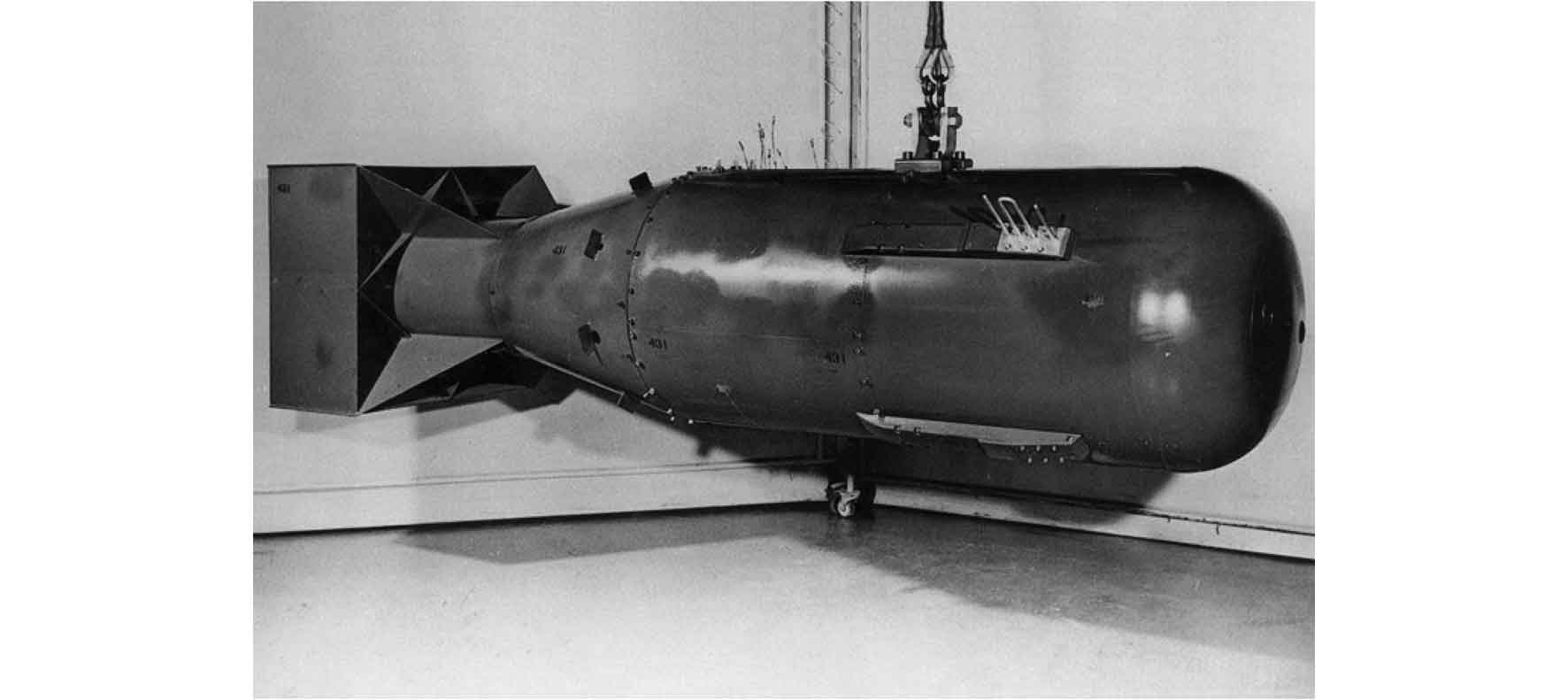
The nuclear weapon “Little Boy” which was dropped by the U.S. imperialists on the city of Hiroshima on August 6, 1945. Among those killed by the blasts and subsequent radiation at Hiroshima and Nagasaki were 40,000 Koreans who had been drafted to work in Japanese industries. Five years later Korean people again faced atomic incineration as the U.S. planned nuclear strikes on North Korea during the Korean War.
An Australian left group that does defend the DPRK as a socialistic state is the Communist Party of Australia (CPA.) The June 3 edition of the CPA’s newspaper, The Guardian, published a worthy statement from the International Anti-Imperialist and People’s Solidarity Coordinating Committee (IAPSCC.) The statement concluded that:
The DPRK is a socialist country, which stands by the struggle of the common people all over the world against imperialist aggression, oppression and exploitation. The toiling masses of the world that look upon DPRK as their staunch ally and firmly assert that DPRK has every right to defend itself from imperialist aggression and has the right to develop its nuclear defence capability.
“It is in the interest of defence of the common people of the world that DPRK should have this capability. Along with the people of the world IAPSCC endorses this right.
However, in its leadership’s own statement on the DPRK nuclear test quoted in the 27 May issue of The Guardian, the CPA wrongly criticized the DPRK’s test. The statement did note that, “The North Korean nuclear test is a result of existing tensions on the Korean peninsula, and the fact that the DPRK feels itself to be under threat.” However, it went on to state that, “The test increases tensions in the region and could derail the current moves towards nuclear disarmament, possibly initiating further nuclear weapons proliferation … The North Korean nuclear tests are not the way forward. Nuclear weapons are not the way forward.” To believe that the DPRK can, in any way, relieve the “tensions” that pull upon it by ending its nuclear testing is very naïve. The “tensions” on the Korean peninsula are not caused by the development of weapons per se but by the inherent enmity between capitalist and workers states. If the DPRK were to stop its nuclear program the hostility they face from the imperialist powers and the South Korean capitalist rulers would not end. Far from it - it would only make the capitalist forces feel that they face fewer obstacles impeding their drive to destroy the workers state in North Korea.
To be sure, nuclear bombs are a truly horrific weapon. When they are used, these weapons do not discriminate between military personnel and civilian or between capitalist exploiter and worker - they simply kill everyone in range. However, it is quite wrong for leftists to believe that nuclear disarmament can occur through simple negotiations and that Washington, Paris, Moscow and Tel Aviv are going to be pressured into giving up their nukes just because socialistic countries refrain from nuclear development. Contrary to CPA thinking, the whole experience of the DPRK has taught its people that failure to possess a nuclear deterrent makes it more likely to be nuclear attacked or nuclear blackmailed by the imperialists. During the Korean War when the DPRK possessed no nuclear program, the U.S. capitalists readied themselves to use nuclear weapons against it on several occasions. At an infamous news conference on 30 November 1950, U.S. president Harry Truman threatened to use atomic bombs against North Korea and China, saying that the U.S. might use any weapon in its arsenal. General MacArthur pushed hardest to be allowed to unleash the nukes. In an interview published posthumously, MacArthur boasted that: “I would have dropped 30 or so atomic bombs … strung across the neck of Manchuria” and then “spread behind us – from the Sea of Japan to the Yellow Sea – a belt of radioactive cobalt … it has an active life between 60 and 120 years.” MacArthur was hardly the only lunatic in the U.S. top brass. In September and October 1951, months after MacArthur was sacked, the U.S. conducted their most chilling operation of the war. In Operation Hudson Harbor, they sent lone B-29 bombers to practice nuclear attacks on North Korea by dropping dummy atomic bombs on Pyongyang. The operation aimed to test “actual functioning of all activities which would be involved in an atomic strike, including weapons assembly and testing, ground control of bomb, aiming.”
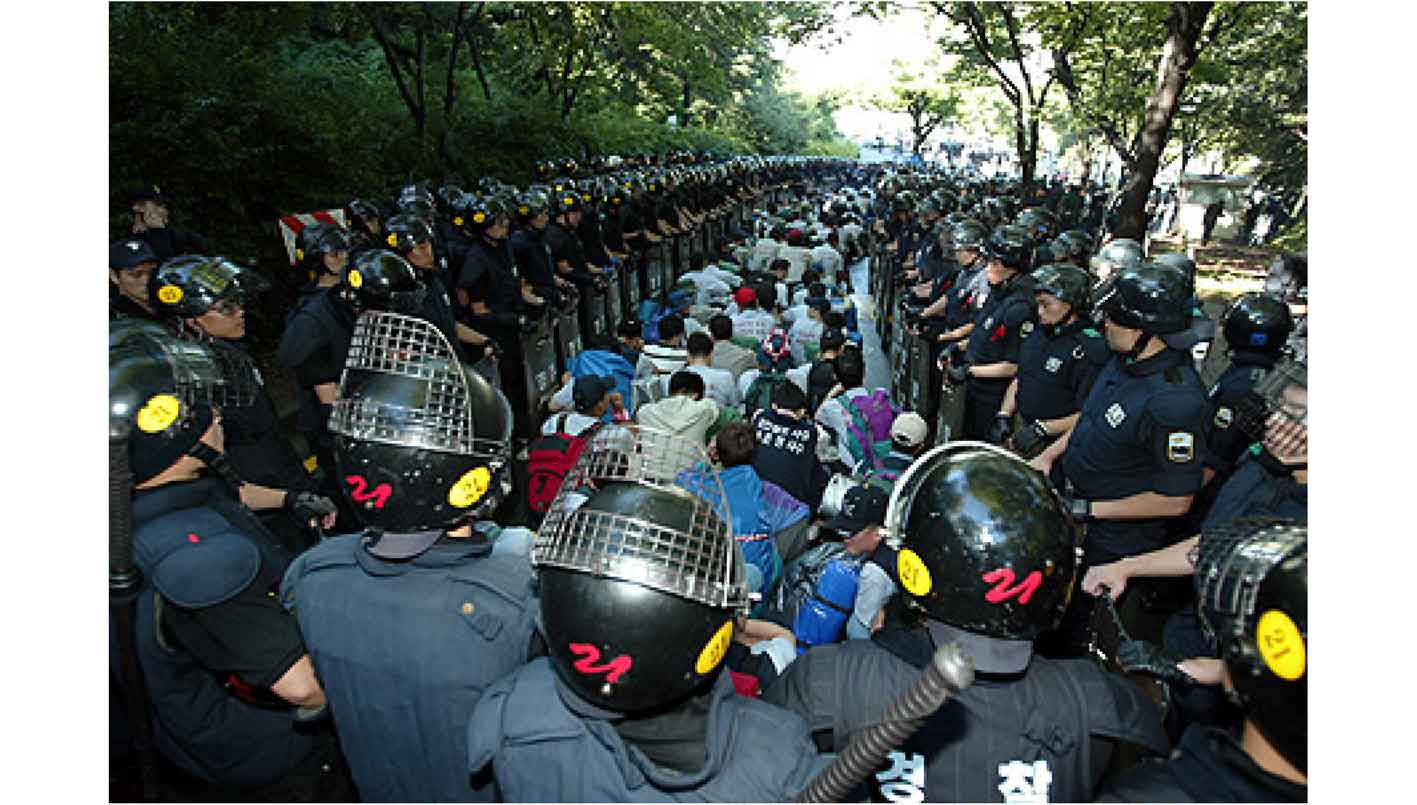
Capitalist “democratic” South Korea, 2003: Notoriously brutal South Korean cops deployed against
striking railway workers holding sit down protest against privatization.
Five years after the Korean War ended, the North Korean people were again faced with a heightened threat of being nuked. In 1958 the U.S., in violation of the armistice that ended the Korean War, deployed nuclear weapons in South Korea not far from the border with the North. The U.S. was open about the presence of this arsenal but the exact number of warheads deployed was never revealed although it was said to be at least 100 and likely several times that number. In 1991, the U.S. officially dismantled this force. However, most South Korean liberal media and leftists believe that the U.S. still maintains a secret nuclear arsenal in South Korea. Apparently, the U.S. brings the weapons in and out of a U.S. military base near Seoul and thus “technically” … South Korea does not have nuclear weapons! In responding to U.S. demands that it open its bases to nuclear inspectors, Pyongyang has repeatedly demanded that North Korean inspectors be able to check U.S. bases in South Korea for evidence of nuclear weapons. The U.S. has always refused to accept such inspection.
Regardless, the U.S. has threatened to nuke North Korea from a range of bases, not just those in South Korea. One example took place in 1969 after North Korea shot down a U.S. EC-121 spy plane over its territory. Washington responded by sending off nuclear-capable B-52 bombers towards North Korea from Guam. The bombers veered off just before reaching the North Korean border. What stopped the U.S. from nuking North Korea on these occasions was the fact that by then North Korea’s Soviet ally was starting to reach rough nuclear parity with the United States. During the Korean War too, the U.S. pulled back from following through on their nuclear strike plans not out of concern for the lives of Chinese and Korean people but because they feared drawing the USSR directly into the conflict. The USSR had a powerful conventional force and although it only had at the time of the Korean War some 5% of the number of atomic warheads that the U.S. had, it still had some 25 warheads that posed some sort of deterrent. It is likely too that the Soviet nuclear deterrent saved Cuba from being atomically incinerated by the U.S during the height of the Cold War.
When the Soviet Union was destroyed, the DPRK lost its key protection against imperialist conventional or nuclear attack. It became highly vulnerable to nuclear blackmail. The DPRK realized that it had no choice but to develop its own deterrent. A key event that led them to this conclusion was when on 8 March 1993 the U.S. resumed their provocative Team Spirit military exercises with South Korea. In a threatening display some 200,000 U.S. and South Korean troops participated in that exercise including B-1 bombers, B-52 bombers and Navy ships carrying cruise missiles (Timeline of Nuclear Threats on the Korean Peninsula, Veterans for Peace [U.S.]). Then in January 2002, then U.S. president George W. Bush made his infamous speech where he branded North Korea, Iraq and Iran as part of an “Axis of Evil.” Just fourteen months later, the U.S. invaded one of the “Axis of Evil” countries. The DPRK is refusing to suffer the same fate. The DPRK people know that the U.S. felt confident to storm into Iraq precisely because it knew that Iraq did not possess any “weapons of mass destruction.” Those leftists who criticize the DPRK’s development of a nuclear weapons capability should realise that they are actually criticising an embattled workers state’s desperate attempt to deter an imperialist nuclear or conventional onslaught.
Of course a workers state’s possession of nuclear weapons is not in itself any sort of complete guarantee against being attacked by capitalist powers. Not least this is because the fanatics in the Pentagon think they can win nuclear wars. Even when the USSR had rough nuclear parity with the U.S., Pentagon and State Department chiefs drew up plans to “defeat the Soviet Union” through nuclear first strikes. In the end, only when the imperialist rulers are deposed from power by the exploited masses in their own countries can the existing workers states be safe from military attack. On the road to that final goal, however, we need to campaign now within the Western capitalist countries to build mass opposition to imperialist threats against the DPRK and China and of course Cuba too. Despite our different view on the right of the DPRK to develop a nuclear deterrent, Trotskyist Platform is willing to cooperate with the CPA and other genuine leftist and anti-imperialist groups to build united front protests against the capitalist bullying of the DPRK.
If we can build such a campaign we will not be alone in the world. Although the impact of propaganda has made the DPRK currently unpopular among the masses in the Western world, it is respected by many in the “Third World” for its defiance of the hated imperialists. In South Korea, too, student activists and many militant workers still politically sympathise with the DPRK. Meanwhile, in the PRC the deep bonds between the Chinese and North Korean masses, sealed in blood during the Korean War, will make it challenging for those PRC leaders that want to completely sell out the DPRK to do so at the critical hour. Anecdotally, it was notable that when the DPRK Olympic team marched at the Beijing Olympics opening ceremony it was given a special rapturous reception by the Chinese spectators.
However, it is especially critical that the left movement and pro-socialist workers in the countries targeting the DPRK, like Australia, also take a stand. We should organise a campaign to demand: No harassment of DPRK ships! End all sanctions against the DPRK! No to a capitalist “regime change” in North Korea! U.S. troops get out of South Korea! If such a movement is to be built then the Australian Marxist left are going to have to be whipped in to shape on the question of the DPRK – and fast. Those leftists that understand that the DPRK is a workers state have the responsibility of accomplishing this task. We need to explain that the necessity for the Australian working class to solidarise with the DPRK when it stands up to capitalist powers is in essence no different from the necessity for workers to solidarise with others workers when the latter are taking industrial action against capitalist bosses. The difference is that the North Korean toilers have gone further than industrial action - they have taken state power. This audacious step has not been without its difficulties and problems but nevertheless it represents a big victory for the exploited against the exploiters, a victory that we should do all in our power to protect.
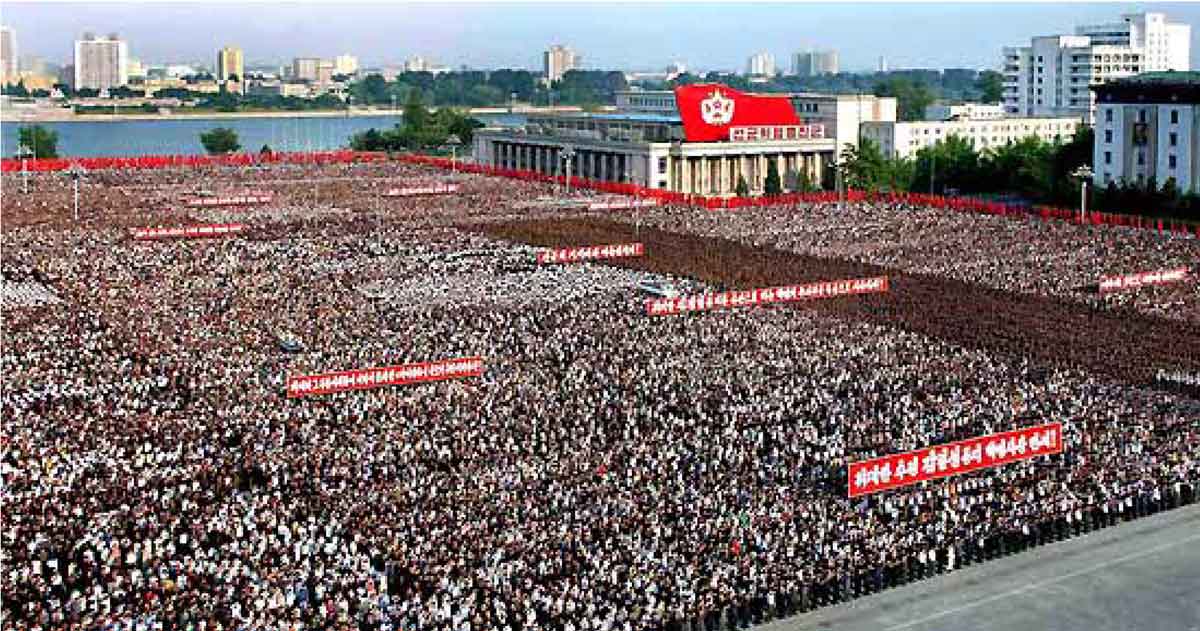
June 2009: Massive conference in the North Korean capital condemns United Nations Security
Council Resolution 1874 that imposed new sanctions on North Korea.


Trotskyist Platform: PO Box 1101, Fairfield NSW 1860, Australia.
E-mail: trotskyistplatform@gmail.com
Phone (Australia): 0417 204 611
Phone (International):0061 417 204 611


